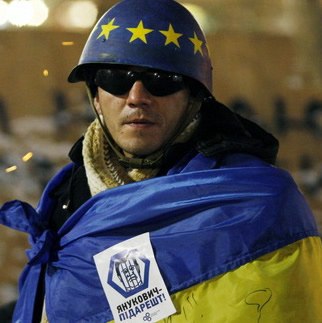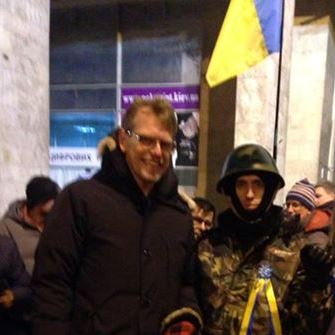Ambassadors' Debate Day in Tallinn brought together heads of diplomatic missions from four Eastern Partnership (EaP) countries—Moldova, Georgia, Armenia, and Azerbaijan—and also from Poland, a co-founder of the event. Tellingly, the Ambassador of Ukraine revoked his participation on short notice and a Belarusian diplomat didn't say a word. This seems to be a highly symbolic silence of these two governments who increasingly share a lot with each other.
The debate, organized by the Tartu-based Europe College, confirmed that Eastern Europe faces a new and very complicated reality, where values and interests usually merge, and political and economic issues overlap. Given this complexity, borderlines between domestic and international matters blur. Evidently, for Moldova, the Association Agreement with the EU is a powerful factor to shape its parliamentary elections due next year, and the mass-scale political protests in Ukraine’s Maidan is a major European event. In this situation, there is no room for black-and-white thinking, and those who choose to base their strategies on zero-sum-game approaches are ultimately most likely doomed to failure.
The debate had started from Eastern Partnership countries, yet it gradually transformed into something of much wider scope and significance—into a discussion on Europe itself. In this sense, the EaP is a kind of mirror that reflects the dilemmas that the EU faces. Of course, we all are aware of an ongoing debate on whether the EU should move toward a more centralized union (the federalist option) or remain an intergovernmental alliance of sovereign nation states. But there are other dilemmas as well—for example, is the EU a (geo)political player capable of striking political deals by negotiation agreements with its partners, or does it choose to remain a purely institutional actor that offers its neighbors certain projects that can only be accepted or rejected?
The ambassadors' debate made two important things clear. First, each of the ambassadors explicitly or implicitly admitted that there is a strong geopolitical context in EU's policies. Paradoxically, this is what many EU member states vehemently deny. Yet even having assumed that the EU indeed tends to play geopolitical games, we need to see that this is not the same geopolitics as it has been known from the textbooks of the last century. The EU geopolitical inclinations are more norm-based than power-related, and more about giving incentives than controlling territories.
Secondly, the debate revealed that a "common neighborhood" still remains a figure of speech and lacks institutional substantiation. Politically, the EU and Russia keep drifting away from each other, and it is hard to foresee so far whether they can come up with more or less coordinated solutions in either Eastern Europe or South Caucasus. Multilateral diplomacy is still a wish for these regions, which seems to be more a challenge to the EU than to Russia, which traditionally has a much stronger preference for unilateral policies.











